- How to remove rust from metal
- How to remove rust from clothes/carpets
- How to remove rust from tiles/bathtubs
Rust. From our fridges to our bikes, it can be a problem - and a really unsightly one at that. If it feels like rust is taking over your home, item by item, don't panic - we're here to help.
Today we're showing you how to get rid of rust for good. We've got loads of methods to show you, including some really helpful home remedies that mean you can get started ASAP.
How to remove rust from metal
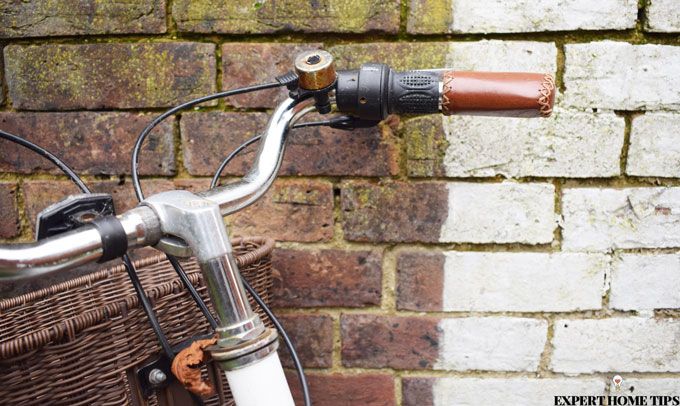
Rust is formed when iron, oxygen and water combine. You may be wondering how or why your radiator is rusting when a drop of water has never so much as touched it, but water itself isn't always to blame. In fact, air moisture, along with iron and oxygen are enough to make rust appear, explaining the reason your tools, old horseshoes, and even jewellery have gone rusty.
Home remedies for removing rust
Whilst there are plenty of products out there that will get your metal shiny and new again, home remedies often do a much better job without the price tag or environmental impacts.
Here are some of our favourite methods...
Removing rust with WD-40
WD-40's creators themselves state that the product can be used to remove rust - a reliable source indeed!
TRY IT: Spray rusted areas with WD-40 and let sit for around 10 minutes. By this time, the rust will have loosened and you should be able to clean it away with a wire brush.
Lemon
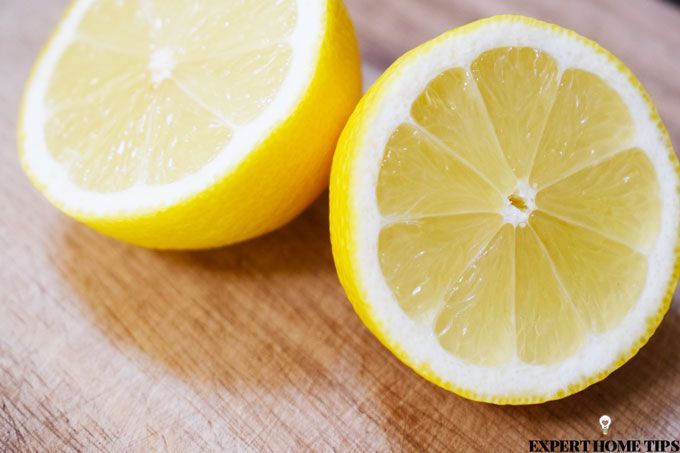
The uses for lemon juice are endless and today we're showing you how it can remove rust. This is best used on small tools or items that can be fully submerged into the liquid such as rust jewellery.
TRY IT: Squeeze a few lemons into a small container, then add your items. Allow them to soak for 2 hours, flipping the items over every 30 minutes. Remove, and scrub with a wire brush - they should look as good as new again.
Vinegar
Similarly to lemon, the acidic nature of vinegar will work wonders at breaking down rust to make your metal sparkly. Again, vinegar is best used on smaller objects that can be soaked, but as it's much less trouble to pour vinegar than squeeze lemons, could be suitable for slightly larger items including rusty picture frames.
Both vinegar and lemon can damage some finishes due to their acidity. Always patch test first, and avoid using it to clean aluminium or delicate objects.
TRY IT: Soak the item in distilled white vinegar for at least 12 hours before testing. The rust should have loosened, so if it remains hard at this point, you will need to leave it for longer. Use a piece of scrunched up aluminium foil to gently scrub the rust off.
Remove rust with baking soda
If you read our site regularly, you'll know how much we love baking soda. Turns out, it's great for removing rust too.
TRY IT: Make up a paste by slowly adding water to bicarbonate of soda. Spread over the rusted area, then use an abrasive tool, such as a scouring pad, to remove the rust.
Coca-Cola rust removal
If you're a fan of Coca-Cola, chances are you have some in your fridge right this very moment. We're often hearing about how bad it can be for our bodies, and when you see what it does to rust, you'll see why.
TRY IT: Submerge the rusty item in Coke for 24 hours, then scrub and rinse clean. If you're dealing with a rusty bike or metal fittings and this isn't possible, you can try pouring Coca-Cola over them, then leaving for 10 minutes before scrubbing.
How to remove rust from clothes/carpets
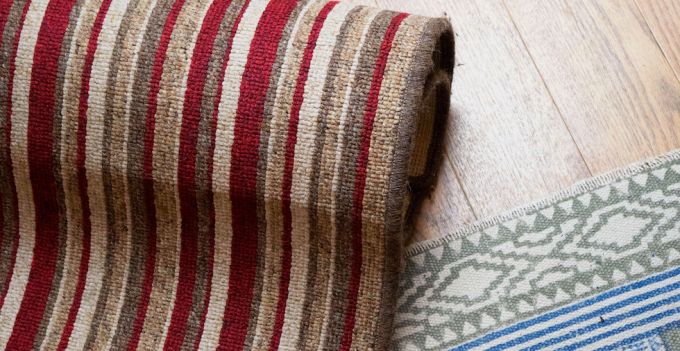
Rust needs three things to form: iron, oxygen and water, so the 'rust' you find on your clothes or carpet is not actual rust, but a rust stain.
Removing it can be tricky, especially if you don't know how - you don't want to try and tackle it with WD-40 or Coca-Cola, that's for sure!
To remove rust stains from clothes, your best bet is a home remedy such as lemon or vinegar.
TRY IT: Lay the piece of clothing out onto a clean countertop or sink, and pour white vinegar or lemon juice over the rust stain. Make sure the area is fully saturated, then blot with a clean paper towel. Pop outside in the sunshine/daylight until the stain has faded, then wash as normal.
How to remove rust from tiles & bathtubs
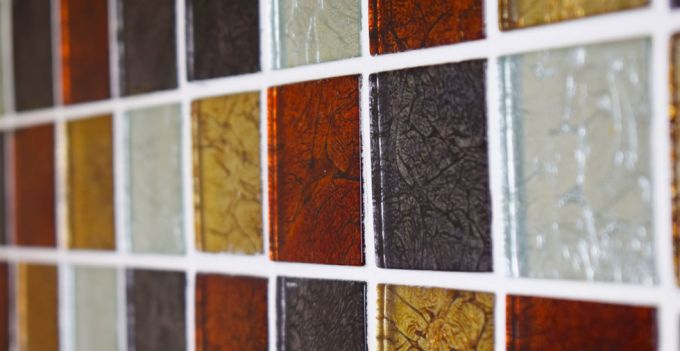
Rust is rarely found on tiles, bathtubs and countertops, but it can happen. This is often due to rusty objects, such as pans and razors being left on them. Acrylic, enamel ceramic and porcelain are all much more delicate than metal and must be treated as such. Similarly to fabric, the best methods for tackling rusty tiles and bathtubs are home remedies - lemon and salt.
TRY IT: Squeeze lemon juice over the rust stains and then sprinkle salt over the top. Leave for 3-4 hours, then gently scrub with a microfibre cloth. Don't forget to rinse the tiles or tub afterwards, as it may dry your skin out!
Next, learn how to clean limescale in the toilet.
Q&A
How does vinegar remove rust?
Vinegar's acidic nature makes is a brilliant rust remover. It reacts with hydrated iron oxide (rust) to turn it into soluble salt which then crumbles away.
Does toothpaste remove rust?
Toothpaste can remove rust stains, but not rust itself. Apply a small amount to fabric and rub with a damp cloth, rinse, then wash as normal.
Does peroxide get rid of rust?
Hydrogen peroxide is a household ingredient that can remove rust. Apply to the rusty area, leave to sit for 5 minutes then scrub with a wire brush to loosen.
Where does rust appear in your household? Let us know in the comments below and we'll do our best to help!
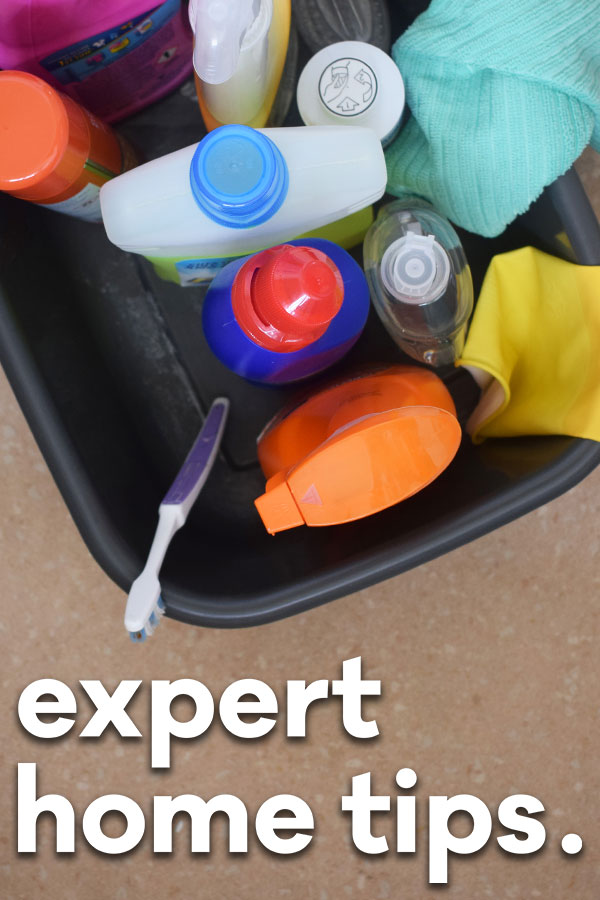

Hi. I have rust on my cooker, and a bit on my fridge freezer. Can you help please?
Hi Barbara! Could you give me some more detail about where the rust is forming and what materials the cooker and fridge freezer are made from?
I've got rust on my shower rail, how can I remove it?
Hi Sharon! What material is your shower rail made from?
I've got rusty window locks, and also the handles won't move. They have been rusted in place and I cannot move them. What can I use?? As I need to get it sorted as I'm moving out and will be to expensive to repair.
Hi Linzi. Are you able to dislodge the handle with something heavy, like a hammer/mallet? If you can get the handle to move, you can then use our metal method to clean them up. It sounds like a new handle/lock would be best in this case, but I understand why you might only want a quick fix.
Penetrating oil is what you need for this, I have had a can from Halfords for years and just used it to free up my stop cock. There is also Plus Gas from English Abrasives, and can be found on Amazon. WD 40 is too thin and not much good, although I do have a can and start with this for minor jobs.
How can I remove rust stains from concrete flags?
Hi Lyn! Could you clarify what you mean by flags? White vinegar is really good for removing rust from concrete, so I'd give that a go!
Thank you Joanne. By concrete flags I mean paving stones
Substitute Lemon with Citric Acid for less waste. Cola simply contains acids (primarily phosphoric). It is bad for teeth, but there are more acidic foods such as lemon or grape fruit. The stomach contains Hydrochloric Acid after all. Stronger acids are an option if they can be rinsed and neutralized from metals or on ceramic.
i have a problem with spots of oil on my paved drive ---- i suspect it could be brake fluid or engine oil. also on our porcelain paving patio , there is some mould appearing around the edges. i would be most grateful if you could please help me with these problems
To remove oil stains from a paved driveway, use a degreaser or a mixture of baking soda and dish soap, scrubbing the stain with a stiff-bristled brush. To remove mould from a porcelain paving patio, clean the surface with water and white vinegar and rinse thoroughly with water. Repeat the cleaning process with a solution of water and bleach if necessary.
I have rust along the bottom edges of the fixed frame of my level access shower where it sits on the flooring and moisture has obviously seeped in making rust leak out onto my floor. I also have it on the bifold doors in the joints where frame is fixed around the glass in the doors plus along bottom where rubber/plastic runs along to prevent water seeping under and out of the moveable shower doors . I’m disabled so need something that’s easy to apply etc. Sorry for long winded explanation! ??
To remove rust from the fixed frame of your shower and bifold doors, use a rust remover solution and apply a rust-inhibiting primer and rust-resistant paint to prevent future rusting. In addition, keep the shower area dry by wiping it down after each use and ensuring adequate ventilation in the bathroom.
I have rust on my metal bike chain but I don’t have a lemon wd40 or any vinegar please help I need to ride Email me
Hi Alfie! Would you be able to get some? Wd40 would do wonders!
How to remove rust stains from a cloth shower curtain?
To remove rust stains from a cloth shower curtain, mix lemon juice and salt in equal parts to form a paste, apply the paste to the stain, let it sit for 30 minutes, and then rinse with water. Alternatively, you can soak the affected area in vinegar and water for several hours, then rinse with water and wash the curtain in the washing machine.
Hi Joanne, I have rust on my walk in shower doors where the rubber meets the metal frame and also in corners of shower where the flooring meets the rail where flooring ends and tiles begin that cover walls. Also have trouble with rust stains around base of toilet pan which meets the floor, this is coming from the metal toilet fixings because of the moisture in the bathroom and it looks terrible & embarrassing when guests ask to use the loo . I have to explain it’s not what it looks like. ?♀️
It can look really bad, can't it?
I have a great deal of iron in my water and it makes the grout in my natural stone shower. Short of scrubbing the grout by hand I have not come up with an easier way to clean it. Any ideas? Thank you.
My pantry has sliding mirrors and the bottom part frame has rust. Would any of these work for it?
We would try vinegar!